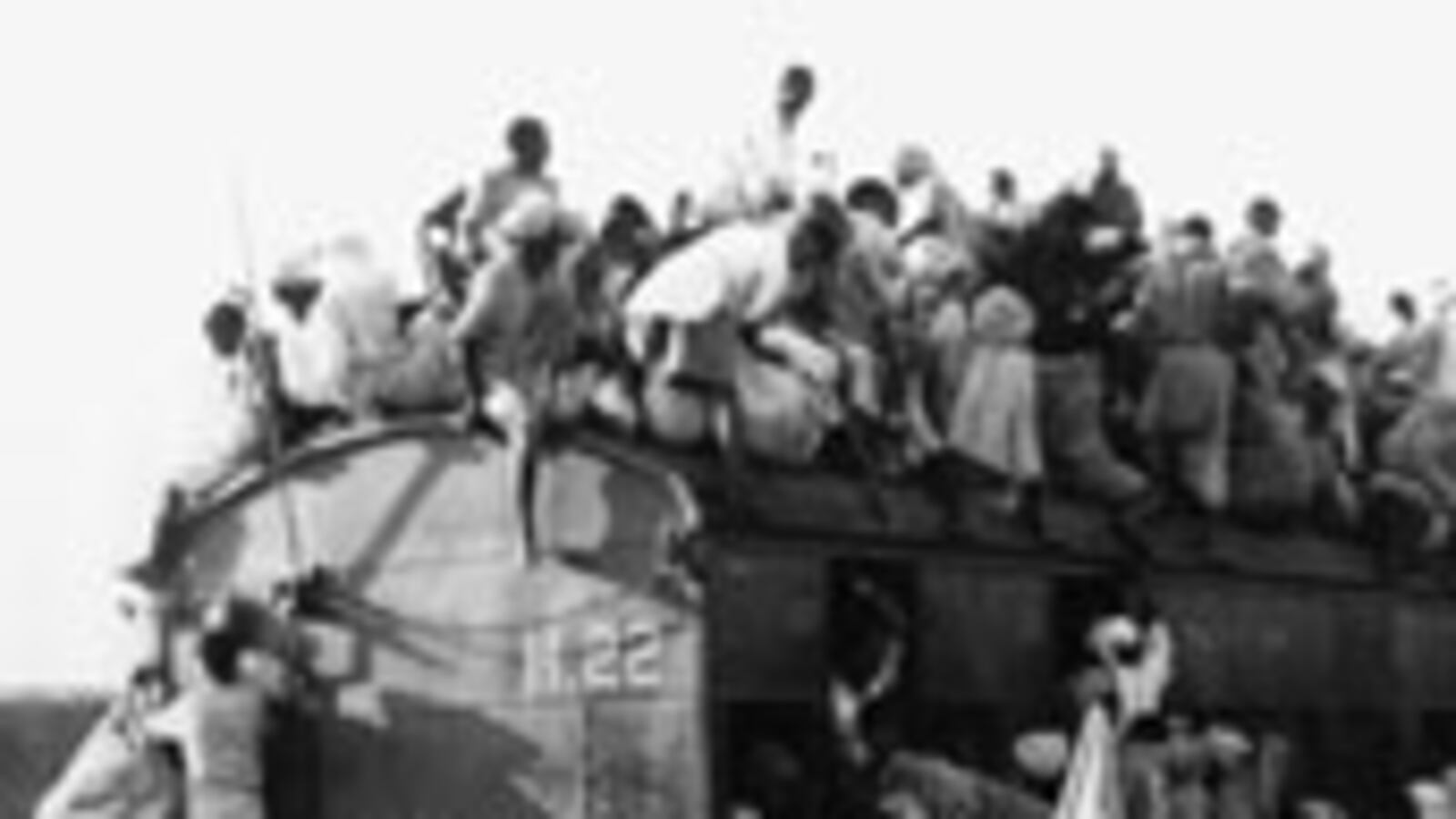
The horrific pictures from Mumbai last week were more than just every traveler's worst nightmare. They were a stark reminder of 60 years of bad blood in South Asia. Ever since the British Empire retired itself in 1947, India and Pakistan have been mired in rancor that has often spilled over into terrorism, war, and threats of nuclear holocausts. In a week when it has also been confirmed by Barack Obama that the United States is to withdraw from Iraq, the mistakes Britain made during its retreat from empire provide lessons that may be costly to ignore.
The Mumbai attacks are the latest atrocities in a year that has seen hundreds killed by terrorism on Indian soil, from Delhi to Assam, from Kashmir to Bangalore. Even while the Mumbai siege was still raging, India claimed that the attackers were Pakistanis. The Pakistani government promised help, backtracked, and then became indignant and blustery. President Zardari's jitters hint at a shaky grasp on power. Now the Indian public is bristling for payback. A pool of gasoline has been poured out, and the rest of the world can only hope that nobody strikes a match.
The ripples from India’s partition are still destabilizing South Asia. The principle that land ought to be apportioned on the basis of its population's beliefs has set the stage for an Islamic nationalist movement which, at its fringe, we know as Al Qaeda.
Today's tensions are the product of a messy history. By the time Britain finally left India in 1947, infighting among Muslims, Sikhs, Hindus, and Dalits had left the body politic seeping with open wounds. Britain's exit, under the viceroyalty of Lord Mountbatten, was a tremendous public relations success. But on the ground it was a disaster. Carving India up into three blocks—India, West Pakistan (now Pakistan), and East Pakistan (now Bangladesh) —triggered not one, but multiple genocides. The death toll is impossible to calculate, but it is estimated that in the three or four months after partition, around a million people were slaughtered.
The ripples from partition are still destabilizing South Asia. The principle that land ought to be apportioned on the basis of its population's beliefs has fueled several violent separatist campaigns, and set the stage for a modern Islamic nationalist movement which, at its fringe, we know as Al Qaeda.
But potentially the most dangerous thing of all is the unfinished border between India and Pakistan. This border was established over the course of 40 days by Sir Cyril Radcliffe, a lawyer who had never previously been further afield than Gibraltar. Radcliffe drew a line based on guesswork, running up from the Arabian Sea, through the deserts of Rajasthan and the fields of the Punjab, and petering out—it is still represented by a dotted line on maps—somewhere amid the mountains of Kashmir.
Partly, Britain left these issues unresolved because it had no choice. Clement Attlee's government inherited a country traumatized by World War II and teetering on the brink of economic collapse. The British people no longer wanted the empire, and certainly could not afford it. Modern Americans may feel their situation is not too different. Britain cut and ran, with excellent results for Britain, and appalling results for India and Pakistan.
Over a period of a little more than a year between 1947 and 1948, the retreating British also drew lines on maps and relinquished control in Israel/Palestine and Iraq. The consequences have been tragic.
In Pakistan, Muslim leader Mohammad Ali Jinnah won his campaign for a separate Muslim-majority state. The crucial lesson for today is that he did so with the resounding and possibly decisive support of the British opposition leader, Winston Churchill.
Churchill was not a fan of Hindus or Muslims, though he preferred the latter, but he was determined to retain a foothold of British and American influence in Central Asia. Jinnah, a laid-back Muslim but a remarkably astute politician, saw the retention of that influence as his nation's best possible defense against India. Thus the two men forged an unlikely partnership. In the last existing letter between them, written just a few months before partition, Churchill expresses warm interest in further discussion, and instructs Jinnah that from then on he is to write to him undercover. The rest of their correspondence has mysteriously disappeared.
From that point, Churchill and the British Conservatives became unlikely cheerleaders for Islamic nationalism. After the Conservatives returned to power, Pakistan received support from Britain and, as the Cold War heated up, increasingly from the United States. The key factor was its position, wedged in between Soviet Russia, Communist China, and an India led by the strongly left-leaning Jawaharlal Nehru. As the century wore on, American arms and funding began to pour into Pakistan and its neighbor, Afghanistan. This perilous venture into the field of monster-creation reached its most notorious point in the late 1970s, when the CIA involved itself with the Afghan mujahideen to attack the Soviets.
Sixty years of British and American meddling in Pakistan has produced an under-developed over-armed nation, united mainly by its resentment toward the West. From January, Obama and Hillary Clinton must ensure in Iraq and Afghanistan that they do not blunder along Britain's path of a chaotic scramble for the exit. Historic tensions must be understood, not antagonized. Threats to public security must be soberly assessed. And largely unknown groups must never be capriciously favored, however much they might look like the enemy's enemy.
As we watch the cleanup teams sift through the rubble and bodies in Mumbai, we can be sure of one thing: If today's politicians get it wrong, our children will pay the price.
Alex von Tunzelmann’s Indian Summer: The Secret History of the End of an Empire was published last year. She writes a film column for The Guardian Online. She is currently writing a book about the Cold War in the Caribbean.






